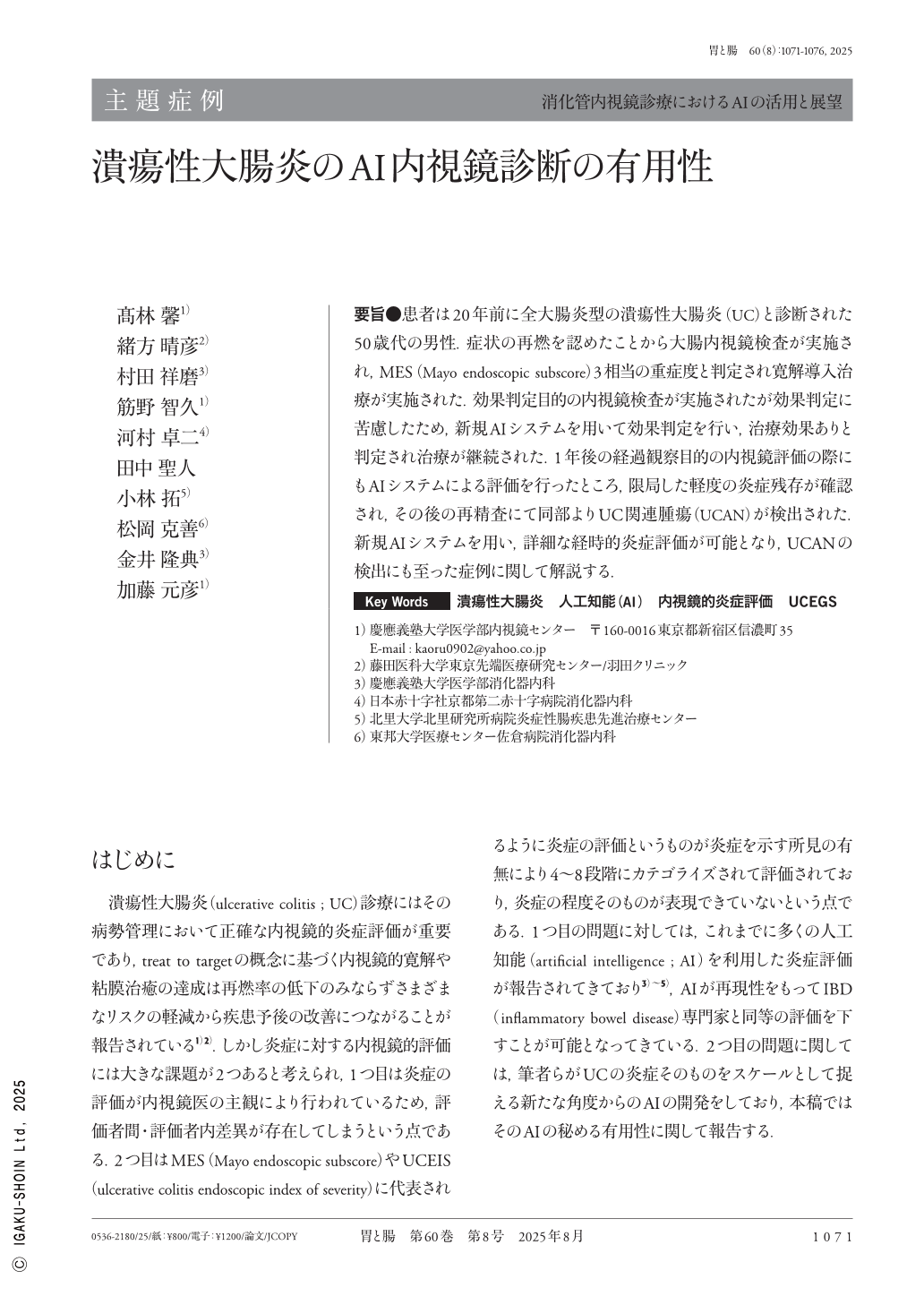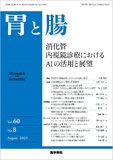Japanese
English
- 有料閲覧
- Abstract 文献概要
- 1ページ目 Look Inside
- 参考文献 Reference
要旨●患者は20年前に全大腸炎型の潰瘍性大腸炎(UC)と診断された50歳代の男性.症状の再燃を認めたことから大腸内視鏡検査が実施され,MES(Mayo endoscopic subscore)3相当の重症度と判定され寛解導入治療が実施された.効果判定目的の内視鏡検査が実施されたが効果判定に苦慮したため,新規AIシステムを用いて効果判定を行い,治療効果ありと判定され治療が継続された.1年後の経過観察目的の内視鏡評価の際にもAIシステムによる評価を行ったところ,限局した軽度の炎症残存が確認され,その後の再精査にて同部よりUC関連腫瘍(UCAN)が検出された.新規AIシステムを用い,詳細な経時的炎症評価が可能となり,UCANの検出にも至った症例に関して解説する.
A man in his 50s was diagnosed with pancolitis-type ulcerative colitis(UC)approximately 20 years earlier. Due to a recent exacerbation of symptoms, colonoscopy was performed, revealing severe inflammation corresponding to the Mayo Endoscopic Subscore(MES)3, which promoted the initiation of remission-induction therapy. A follow-up colonoscopy was conducted to assess the therapeutic effectiveness ; however, the difficulty in evaluating treatment efficacy led to the use of a novel artificial intelligence(AI)system, which determined the treatment to be effective, and the treatment was continued as a result. One year later, during a routine surveillance colonoscopy, the AI system detected mild residual localized inflammation. Subsequent detailed evaluation revealed a UC-associated neoplasm at this site. This case report describes the utility of a novel AI system in performing detailed longitudinal assessments of inflammation, ultimately facilitating the detection of a UC-associated neoplasm.

Copyright © 2025, Igaku-Shoin Ltd. All rights reserved.


